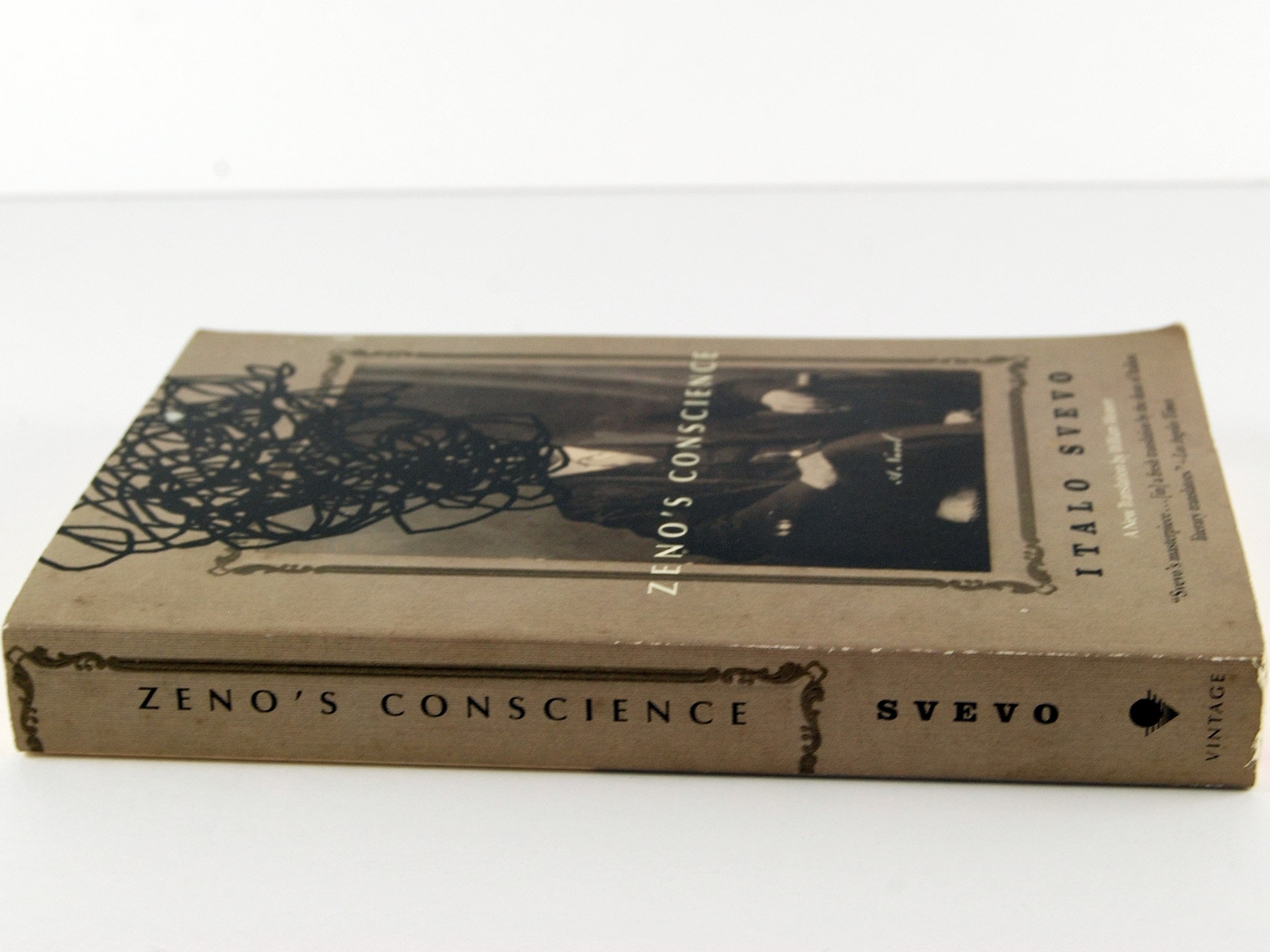
Zeno’s Conscience (La Coscienza di Zeno) is a book written by Italian author Italo Svevo and published in 1923. The author’s real name was Ettore Schmitz (1861-1928). His father was from Germany and his mother was Italian and before engaging in the literary activity, he studied business in Germany and then in Trieste.
His passion and interest for literature already began when he was young, but he always struggled to approach it and get closer to it as he considered it almost like an illness, as opposed to the practical and productive business world where he belonged. He regarded writing as a means of self-knowledge and knowledge of the world.
His closeness – thanks to where he lived and his business work – to the German culture and literature and his various trips abroad influenced his narrative and linguistic style and expanded his pool of knowledge and influences. On the other hand, this also caused him to be marginalized from the Italian literary culture and the predominant language used in most Italian works at that time.
Such recognition finally came with his most famous book, Zeno’s Conscience, in which the author explores the contemporary’s man difficulties and struggles to engage and positively act in life.
Italo Svevo was 62 when Zeno’s Conscience came out and it gained widespread success. In fact, he welcomed it stating that, "until last year, I was ... the least ambitious old man in the world. Now I am overcome by ambition. I have become eager for praise. I now live only to manage my own glory."
The story unfolds around the male protagonist, Zeno, who is asked by his psychologist to write a journal during the psychoanalysis journey. When Zeno decides to interrupt the therapy, the analyst decides to publish the journal out of spite to embarrass Zeno and get revenge after he left.
In his journal, Zeno focuses on five different stories of his life: his unsuccessful efforts to stop smoking; his father’s death; his marriage; his lover; his business partnership with the husband of his sister-in-law. In a simple and straightforward way, the readers see Zeno’s feelings changing and becoming more complicated and confused, leading Zeno to doubt his actions, their meaning and rightness. In the very last chapter, Zeno concludes that he believes his therapist’s way of curing him is wrong and that he wants to take away all the best memories Zeno has.
Zeno seems to be honest in telling his story, but his behavior is questionable. As a matter of fact, he fools his friends, lies to his wife, and is deceitful, lustful, and impulsive. “Zeno is always doing something unreasonable, quixotic, even self-destructive just because he enjoys the largeness of the feelings involved”.
In his storytelling and his observation of human behavior – both his and other people’s – he also talks about World War I and how he sent his family to Tuscany, and he stayed in Trieste alone, waiting for it to be over.
Zeno goes even further and “he considers introspection, war, memory, health and sickness and comes up with a remarkable peroration that casts a lyrical and reflective light backward over the whole novel and makes something profound of its apparently simple materials”.
Zeno, through his behavior and actions, embodies an inability to live and all his ineptitude.
He spirals into a vortex of regret, good intentions and failures that span from his struggle to quit smoking to all the other matters in his life. From the difficult and complicated relationship with his father characterized by mistrust and misunderstanding; his first unwanted but later somehow happy marriage with Augusta and his affair with a younger woman, that began due to Zeno’s fear to grow old and for which he never took moral responsibility; to his unstable relationship with his brother-in-law Guido, who had marred the woman Zeno was in love with, and the business relationship he established with him.
Eventually, the book ends with an apocalyptic prediction of a disaster that will devastate the world.



